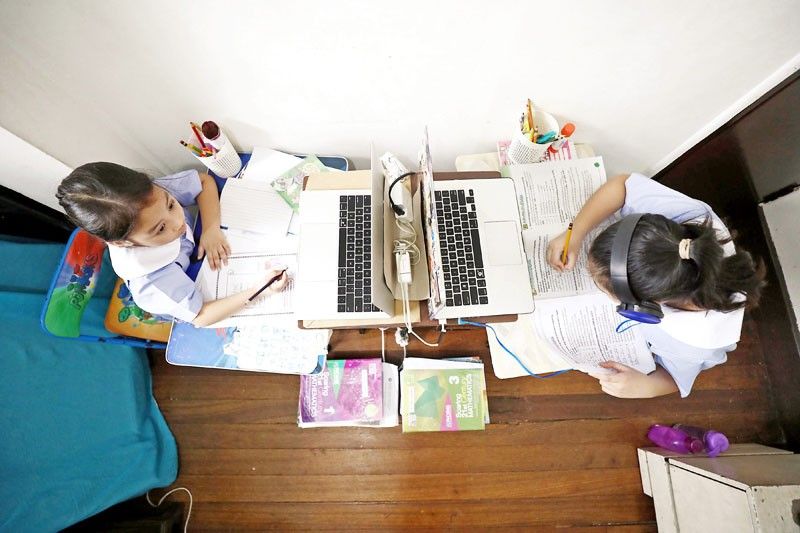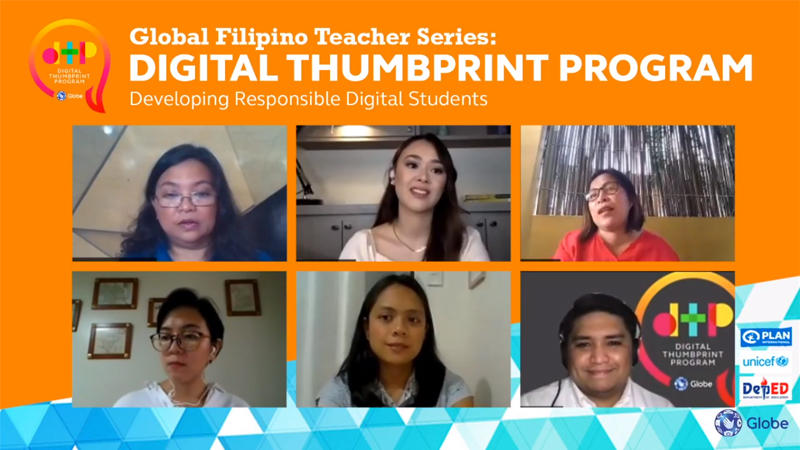What parents need to know as kids’ education becomes digital in new normal

MANILA, Philippines — As schools nationwide await official opening in October, the Department of Education (DepEd), along with institutions, stakeholders and educators, continue to gear up for distance learning in the midst of the global health crisis.
Under the department’s school readiness program, there are different modes of distance learning such as online learning, self-learning modules, and learning through TV and radio. Of these, learning via the internet is the most immediate shift being undertaken.
At home, parents also have key roles to play. Apart from preparing connectivity, devices like laptops and tablets, and a conducive environment, parents must also adapt to this digital shift, and more importantly, impart online safety values to their children.
In this light, parents and educators alike can turn to Globe’s Digital Thumbprint Program (DTP), which aims to promote responsible and safe online citizenship among Filpinos.
Recently, a Global Filipino Teacher Series was held under the program in partnership with DepEd. The two-day webinar invited experts and educators to talk about the current education landscape in the country.
Here are important know-hows that parents can learn from DTP and the Global Filipino Teacher Series:
1. Children are at risk in the internet
According to Unicef, 1 out of 3 internet users in the world is a child. However, the UN agency also reports that “too little is done to protect them from the perils of the digital world.”
What are these so-called perils? Georges Dizon, business enablement and training manager at Globe myBusiness, identified cyberbullying, video game addiction, meeting with strangers, exposure to sensitive content and false information, and online child sexual exploitation.
The latter is a serious threat in the Philippines, as the country is considered as one of the top sources of child sex abuse materials in the world. UNICEF’s Philippine Kids Online Survey found that “90% of Filipino children can access the internet whenever they want or need to, and 59% connect to the internet without supervision.”
Due to this, two out 10 Filipino children are vulnerable to be victims of child online sexual exploitation and abuse.

2. Teaching internet safety at a young age
To protect their children online threats, parents must guide and teach their children about online safety at an early age.
“Teach kids about technology from a young age... Explain to them that tablets, computers and other media devices are not toys which should be handled with care. Discuss to kids the many benefits of technology as well as the risks involved,” said Sheila Estabillo, Cyber Safe Spaces Project Manager at PLAN International Philippines, who is one of the panelists during the Global Filipino Teacher Series.
She added that parents must continue to watch over their children’s online activity even as they grow up.
“As they get older it’s not easy to look over their shoulders anymore. Have open and honest discussions about what sites and type of contents are off limits [to children]. Also check your child’s browser’s history,” Estabillo said.
3. Raising critical-thinkers, future decision-makers
Also invited as panelist for the Global Filipino Teacher Series was Philstar.com’s editor in chief Camille Diola, who shared to parents how false information, or fake news, can also affect children as they grow up.
“Now that classrooms are shifting in the very screens in which we are entertained, and in which we communicate… children need to be critical-thinkers,” Diola said.
Parents can teach children how to differentiate facts from opinions and false information, and how to get information from credible sources. These skills can be used throughout their lives, as they become future decision-makers, and as they take part in nation-building.
4. Cyber safety practices
Dizon also encouraged parents to be responsible online internet users so they can be role models to their children. He shared the following cyber safety practices they can do and they can teach kids:
- Ensure accounts are private so that you only share content to people you know and trust. Keep sensitive data like birthday, phone number, address and cards private, Also use strong and secure passwords (combine letters in lower and uppercases, numbers and symbols).
- Don’t stay too long in social media and on your mobile devices.
- Be careful with images and content you share.
- Message and post responsibly. Think first before posting. Before hitting send button, make sure that your message is clear.
- Don’t share your and your child’s location easily.
These cyber safety guidelines are part of Digital Thumbprint Program’s e-modules, which are continuously being shared to teachers in partnership DepEd.
The Global Filipino Teachers Series is just one of Globe’s efforts in helping the country cope with the challenges and effects of the ongoing pandemic.
To watch the two-day Global Filipino Teachers Series, visit https://www.facebook.com/GlobeBridgeCom.




















